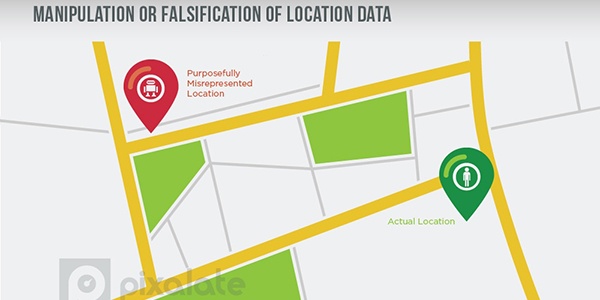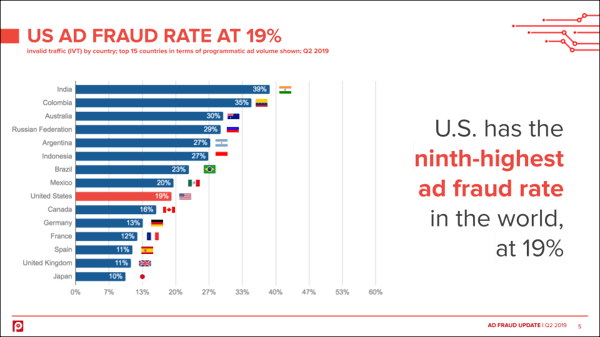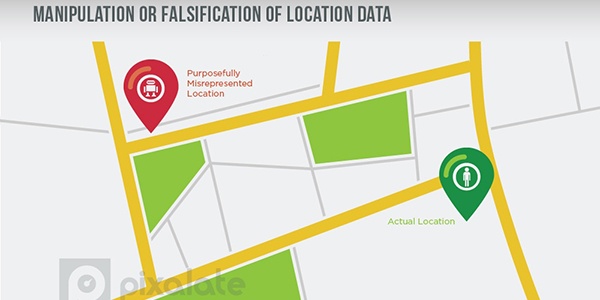
This week's review of ad fraud and quality in the digital advertising space.

Which countries have the highest invalid traffic (IVT) rates in programmatic advertising? In our Q2 2019 Ad Fraud Report, we reveal the overall programmatic IVT rates for the top 15 countries in terms of programmatic ad volume.
Going to DMEXCO? RSVP for our expert panel for in-depth analysis on the state of the mobile programmatic supply chain, featuring Pixalate, Criteo, MoPub, and Verizon Media.

PYMNTS "spoke with Facebook’s Director of Product Management Rob Leathern about how the company fights ad fraud by vetting advertisers and weeding out potential scammers."
"Leathern explained that the best way to fight ad fraud is to make sure fraudsters are disincentivized from using Facebook for their schemes," the article notes. Read the full Q&A here.

"[D]ue to poor quality data and mis-targeted location impressions, anywhere from 30% to 80% of location ad spend is being wasted, according to new research by data intelligence company Location Sciences," MediaPost wrote. "[S]ome apps don’t secure users’ permission to access location data. More than a third (36%) of the top GPS-enabled apps were found to display location fraud," the article noted.

"Mobile fraudsters are impressively stealing your ad budget, and you likely don’t even know it," wrote Adweek. "The 2019 mobile fraudsters are now well-organized companies that flood your data feeds with garbage that looks great, which in turn keeps even advanced buyers incorrectly yearning for more."
Adweek shines the light on "several critical types of mobile fraud and discuss actionable tactics to protect your budget, data and business."

In this video, eMarketer forecasting director Shelleen Shum reviews the company's latest figures to ad-blocking. The video reveals that U.S. ad blocking use has stabilized, but notes that the use of ad-blockers "isn't going away."
*By entering your email address and clicking Subscribe, you are agreeing to our Terms of Use and Privacy Policy.
These Stories on Weekly Recaps
*By entering your email address and clicking Subscribe, you are agreeing to our Terms of Use and Privacy Policy.

Disclaimer: The content of this page reflects Pixalate’s opinions with respect to the factors that Pixalate believes can be useful to the digital media industry. Any proprietary data shared is grounded in Pixalate’s proprietary technology and analytics, which Pixalate is continuously evaluating and updating. Any references to outside sources should not be construed as endorsements. Pixalate’s opinions are just that - opinion, not facts or guarantees.
Per the MRC, “'Fraud' is not intended to represent fraud as defined in various laws, statutes and ordinances or as conventionally used in U.S. Court or other legal proceedings, but rather a custom definition strictly for advertising measurement purposes. Also per the MRC, “‘Invalid Traffic’ is defined generally as traffic that does not meet certain ad serving quality or completeness criteria, or otherwise does not represent legitimate ad traffic that should be included in measurement counts. Among the reasons why ad traffic may be deemed invalid is it is a result of non-human traffic (spiders, bots, etc.), or activity designed to produce fraudulent traffic.”

